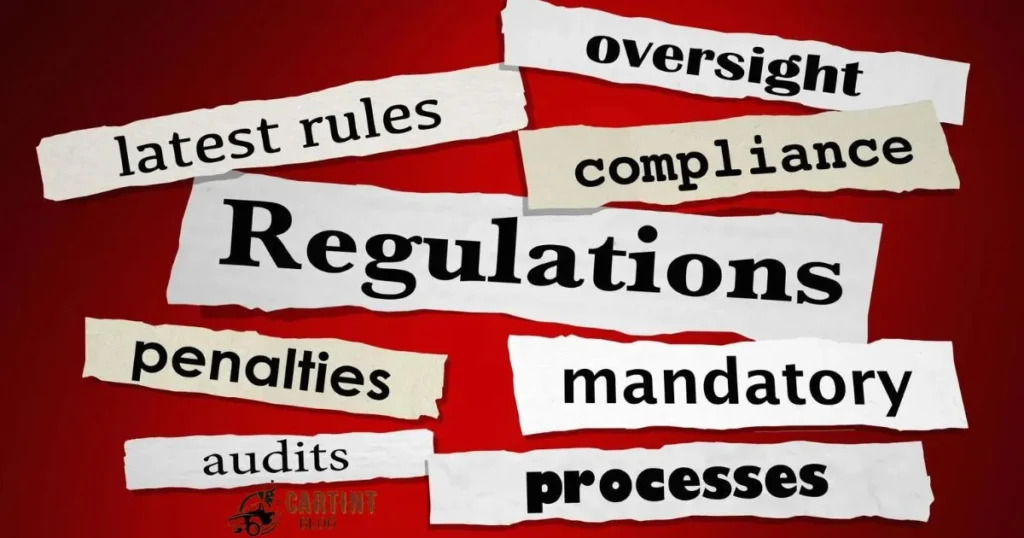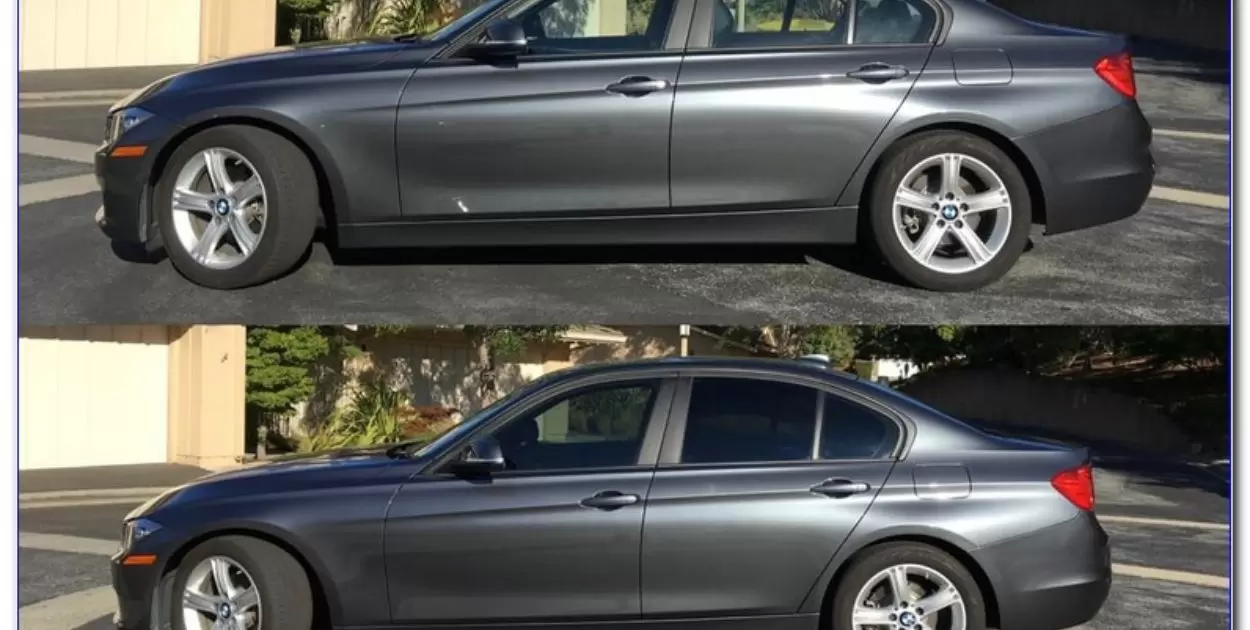Car tint, or window tint, involves applying thin, darkened films to vehicle windows. These films serve purposes like reducing glare, heat, and UV radiation. Different shades indicate the percentage of light allowed through, with each state, including Tennessee (Tn), having specific regulations.
Is 20 Tint Legal In Tn? This question delves into the legality of 20% tint in Tennessee. Understanding tint limits is crucial to avoid fines. It’s a key consideration for residents and visitors alike to ensure compliance with state laws and a hassle-free driving experience.
In Tennessee, the legality of 20% tint is governed by state regulations. These laws aim to maintain visibility for drivers and law enforcement. Exceeding the legal limit can lead to traffic stops, fines, or the need to modify the tint. Vehicle owners should be aware of and adhere to these guidelines to avoid legal consequences.
Legal Framework for Cartint in Tennessee
In Tennessee, the legal rules for car window tinting are clear and straightforward. The state has a specific legal framework that dictates how dark a car’s tint can be. If you’re wondering about the legality of 20 tint in Tennessee, it’s crucial to understand that the state measures tint darkness by percentage.
The lower the percentage, the darker the tint. So, if 20 tint refers to a 20% darkness level, it’s important to check if this meets Tennessee’s legal standards. Tennessee law actively regulates car tint to ensure safety on the roads. The legal framework sets limits to maintain visibility for drivers and law enforcement.
Car owners need to be aware of these regulations to avoid any legal complications related to window tinting in the state. Always check and adhere to the specific tint percentage allowed by Tennessee law to ensure you stay on the right side of the legal framework.
Is 20 Tint Permissible in Tennessee?
In Tennessee, the legality of a 20 tint for car windows depends on state regulations. Tennessee law sets specific limits on the darkness of window tint, measured as a percentage of light allowed through.
A 20 tint implies that only 20% of outside light can pass through the window. To find out if a 20 tint is allowed in Tennessee, one should refer directly to the state’s car window tinting laws. These laws aim to balance individual preferences for darker windows with concerns for safety and visibility on the road.
Breaking Down Cartint Percentages

Understanding car tint percentages is crucial for vehicle owners. These percentages indicate the amount of light that can pass through the tinted windows. In Tennessee, where cartint regulations are in place, the term 20 tint refers to a specific percentage of light allowed.
A 20 tint means only 20% of external light can penetrate the window, providing privacy and reducing glare. Car owners need to be aware of these percentages to stay within the legal limits.
Compliance with these regulations ensures safety on the road and avoids potential legal consequences. Knowing how to measure and adhere to the cartint percentages allows vehicle owners in Tennessee to personalize their vehicles while staying on the right side of the law.
Tennessee Window Tinting Laws
Tennessee has specific laws regarding window tinting for vehicles. The front side windows must allow more than 35% of light. This regulation ensures that drivers have clear visibility and safety. Rear side windows can have any darkness level, offering more flexibility for privacy.
The rear window also follows the same rule as the rear side windows. It is important to know and follow these rules to avoid fines. Always check for any updates in tinting laws before getting your windows tinted.
Window Tint Reflection In Tennessee
Window tint reflection in Tennessee should not be overly metallic. Excessive reflection can pose safety concerns for drivers. Tennessee law allows a certain level of reflectivity for window tints. This regulation ensures drivers have clear visibility while on the road. Highly reflective tints can sometimes distract other drivers, causing potential hazards.
It’s important to follow the reflectivity guidelines set by the state. Always consult a professional to ensure your tint complies with Tennessee regulations. This way, you enjoy a safer driving experience with legally compliant window tints.
Other Tennessee Window Tint Rules And Regulations

Tennessee also has additional important rules about window tinting for vehicles. The windshield’s top can have non-reflective tint within the AS-1 line. Medical exemptions for darker tints are possible with proper documentation from a physician. It’s essential for rearview mirrors to remain untinted for clear vision.
Certifying labels from manufacturers must be present on tinted windows. Local tinting professionals are knowledgeable about these regulations. Always ensure your tinting service meets Tennessee’s legal standards for compliance. This avoids fines and keeps your vehicle within legal limits.
Darkest Legal Tint For Cars In Tennessee
In Tennessee, the darkest legal tint allows more than 35% of light through front side windows. This ensures drivers maintain clear visibility while driving on the roads. Rear side windows have more flexibility and can be darker than front side windows.
The rear window can follow the same darkness rules as the rear side windows. It’s important to follow these guidelines to avoid any potential fines. Staying within these limits ensures your vehicle is legally compliant and safe to drive.
What Are The Laws For Car Window Tinting In Tennessee?
Tennessee has clear laws for car window tinting to ensure driver safety and visibility. Front side windows must allow more than 35% of light to pass through. The rear side and rear windows can be darker, providing more privacy for passengers.
The windshield’s top allows non-reflective tint within the AS-1 line. Medical exemptions for darker tints are sometimes possible with proper documentation. Always follow these laws to avoid fines and stay safe on the road.
What Is The Point Of Auto Window Tinting?
Auto window tinting offers many benefits for both drivers and passengers alike. It reduces glare, improving visibility and making driving safer in bright conditions. Tinting also helps keep the car’s interior cooler by blocking out sunlight.
It can protect your skin from harmful UV rays during long drives. Privacy is another advantage, as it limits the view inside your vehicle. Tinting adds a sleek look, enhancing the overall appearance of your car.
What Are The Different Levels Of Auto Window Tinting?
Auto window tinting comes in various levels, each offering unique benefits. The lightest tints provide some UV protection while maintaining clear visibility. Medium tints offer good privacy and reduce interior heat greatly.
Dark tints maximize privacy and block most sunlight, ideal for hot climates. Each level is designed to suit different needs and preferences perfectly. Consult with a professional to choose the right tint level for your car.
How Much Does It Cost To Tint Car Windows?
The cost to tint car windows varies by vehicle size and tint type. On average, expect to pay between $100 and $400 for a standard tint job. Premium tints, like ceramic ones, can cost up to $800. Prices may also vary by location and quality of work.
Always get multiple quotes to find the best deal in your area. Checking reviews helps ensure you choose a reputable tinting service. Newer vehicles or unique window shapes might have higher costs.
Are There Variances in Cartint Laws Across States?
Car tint laws differ from state to state. Each state has its own set of regulations regarding the darkness of car window tint. These variances mean that what might be legal in one state could be against the law in another.
It’s crucial for drivers to be aware of these differences and ensure their car tint complies with the specific regulations in the state where they reside or plan to drive. Checking and understanding these variances can prevent legal issues and fines related to non-compliant car tinting. Understanding the distinctions in car tint laws is straightforward.
By researching and familiarizing oneself with the tinting regulations in a particular state, drivers can confidently adhere to the law. This proactive approach ensures that your car tint is in line with local standards, making your driving experience smoother and avoiding any unnecessary legal complications.
Practical Implications of a 20 Tint
Car window tinting, specifically a 20 tint, has practical implications that extend beyond aesthetics. The percentage refers to the amount of light allowed to pass through the tinted windows.
In the case of a 20 tint, only 20% of light can penetrate the glass, resulting in a darker and more private interior. Understanding the practical consequences of such tinting is crucial for drivers, as it can impact visibility, safety, and even regulatory compliance. Below is a table summarizing the practical implications of a 20 tint:
| Aspect | Practical Implications |
| Visibility | Reduced visibility, especially in low-light conditions. |
| Safety Concerns | Potential impact on road safety due to decreased visibility. |
| Legal Compliance | Adherence to or violation of local car tinting regulations. |
| Heat Reduction | Effective in reducing interior heat and glare. |
| Interior Privacy | Increased privacy for occupants inside the vehicle. |
| Aesthetic Appeal | Enhanced aesthetic appeal with a sleek and stylish look. |
This table provides an overview of the practical aspects that individuals should consider when opting for a 20 tint, offering insights into both the positive and potential challenges associated with this level of window tinting.
Cartint Inspections and Enforcement
In Tennessee, car tint inspections are crucial. Law enforcement actively checks vehicles to ensure compliance with tinting regulations. If your car tint exceeds the legal limit, you might face penalties.
Enforcement is straightforward. Officers measure tint percentages during routine traffic stops or at checkpoints. It’s essential to stay informed about the allowed tint levels to avoid issues with the law. Regularly check and adjust your car tint to comply with Tennessee regulations, ensuring a hassle-free driving experience.
Navigating Legal Cartint Limits
- Understand State Regulations: Familiarize yourself with Tennessee’s specific car tint laws.
- Tint Percentage Limits: Know the allowed percentage of light transmission for front, rear, and side windows.
- Medical Exemptions: Explore whether medical conditions qualify for exemptions and what documentation is required.
- Commercial Vehicle Variances: Be aware of any distinctions in tint regulations for commercial vehicles.
- DIY Measurement Methods: Learn techniques to measure your tint percentage and stay within legal limits.
- Insurance Implications: Investigate whether tinted windows impact your insurance premiums.
- Front and Rear Distinctions: Understand if there are different tinting rules for front and rear windows.
- Regular Inspections: Stay proactive by routinely checking and adjusting your car tint to comply with the law.
- Law Enforcement Perspectives: Consider how law enforcement views and enforces car tint regulations.
- Public Perception: Be mindful of public opinions and experiences regarding car tint in your community.
- Consequences of Violations: Understand the potential penalties and legal consequences for violating tinting regulations.
- Environmental Considerations: Explore any ecological impacts associated with certain types of car tint materials.
- Advancements in Tinting Technology: Stay updated on the latest trends and innovations in the world of car window tinting.
- Safety and Visibility: Consider the impact of tinted windows on driving visibility and overall safety.
- Legal Guidance: Seek legal advice if you have specific questions or concerns about car tinting laws in Tennessee.
Is Medical Exemption Applicable to 20 Tint?

In Tennessee, the legality of a 20 tint for car windows hinges on whether a medical exemption applies. This exemption is crucial for individuals with specific health conditions that necessitate increased protection from sunlight.
If you have a valid medical reason, you may be permitted to have a 20 tint on your car windows, but it’s essential to adhere to the proper procedures and documentation. People seeking a medical exemption for a 20 tint should consult with their healthcare provider.
Once the medical necessity is established, individuals can then follow the outlined process to obtain the required documentation. This documentation serves as proof to authorities that the 20 tint is not merely an aesthetic choice but a medically necessary modification for the well-being of the vehicle’s occupants.
Cartint for Commercial Vehicles
Car tint regulations for commercial vehicles in Tennessee are straightforward. The law specifies the acceptable tint levels for both the driver and passenger windows. Commercial vehicle owners must ensure that their window tint complies with these regulations to avoid legal issues.
If you own a commercial vehicle in Tennessee, make sure your window tint falls within the permissible limits. Check the state guidelines to determine the exact percentage allowed for both the driver’s and passenger’s windows. Adhering to these regulations ensures that your commercial vehicle remains in compliance with the law, helping you avoid potential fines or penalties.
How Can You Measure Your Cartint Percentage?
To measure your cartint percentage, use a simple tool called a tint meter. Hold the meter against your car window, and it will display the tint percentage. This device helps you ensure that your car tint complies with legal limits.
You can consult the paperwork from your tint installation. The installer often provides a label specifying the tint percentage. By checking this information, you can quickly verify the tint level on your vehicle without any complexity. Regularly measuring your cartint percentage is crucial to avoid legal issues and ensure compliance with the regulations in your area.
Environmental Impact of Cartint

Car tinting, when not done responsibly, can have adverse effects on the environment. The materials used in some tints may contain harmful chemicals that, when exposed to sunlight or heat, can release pollutants. These pollutants contribute to air pollution and can have negative consequences for both human health and the ecosystem.
Improper disposal of tinted materials can further harm the environment. When old tint is discarded irresponsibly, it can end up in landfills, potentially leaching harmful substances into the soil and water.
To minimize the environmental impact of car tinting, it’s crucial for individuals to choose tints with eco-friendly materials and to dispose of old tint responsibly through recycling programs or proper waste management channels. By being mindful of the environmental implications, car owners can contribute to a greener and healthier planet.
Cartint Trends and Innovations
Car tinting is evolving with new trends and innovations. People now prefer smart tint technology, allowing them to control the tint level with a simple switch. This innovation provides flexibility, making it convenient for users to adjust the tint based on their preferences and needs.
There’s a rising interest in eco-friendly tinting solutions. Tint manufacturers are introducing films that not only reduce glare and heat but also have minimal environmental impact. These eco-friendly options align with the growing awareness of sustainable choices among car owners.
Legal Consequences of Violating Cartint Laws
Breaking car tint laws in Tennessee comes with serious consequences. If you exceed the permitted tint percentage, you risk facing penalties and fines. Law enforcement actively monitors tint levels, and if you’re found in violation, you may have to pay fines or even remove the tint to comply with the law.
Violating car tint regulations could also affect your insurance premiums. Insurance companies may view illegal tint as a risk, potentially leading to increased rates. To avoid legal repercussions and financial consequences, it’s crucial to adhere to the established car tint laws in Tennessee, ensuring your vehicle complies with the permissible tint percentages.
Do Cartint Laws Consider Front and Rear Windows Differently?
Car tint laws in Tennessee treat front and rear windows differently. The regulations distinguish between the windows located at the front and those at the back of the vehicle. When it comes to tinting the front windows, there are specific legal limits that must be adhered to, ensuring visibility and safety for drivers.
On the other hand, rear windows may have different permissible tint percentages, and it’s crucial for vehicle owners to be aware of these distinctions to comply with the state’s car tinting laws. Understanding these differences is important for drivers in Tennessee.
It means that the level of tint allowed on the front windows might not be the same as what’s allowed on the rear windows. Staying informed about these specific regulations helps ensure that your vehicle’s window tinting meets legal standards, avoiding potential issues with law enforcement and ensuring a safe driving experience.
Cartint and Insurance Premiums
Car tinting in Tennessee may affect your insurance premiums. Insurance companies often consider factors like visibility and safety, and dark tints may impact both. If you have a 20 tint, it’s crucial to understand how it could influence your insurance rates.
Some insurers might see tinted windows as a potential safety hazard, affecting your coverage costs. Before getting your windows tinted, check with your insurance provider to comprehend any potential changes in premiums associated with cartint.
Being aware of these considerations can help you make informed decisions about both your car’s aesthetics and your insurance budget.
Public Opinion on 20 Tint in Tennessee

In Tennessee, people have varying views on 20 tint for car windows. Some believe it adds a sleek aesthetic and enhances privacy, appreciating the cool and stylish appearance it gives to vehicles. Others, however, express concerns about safety, emphasizing the potential reduction in visibility, especially during nighttime driving.
Public opinion plays a crucial role in shaping discussions around 20 tint legality. Many residents engage in conversations about whether the state’s regulations strike the right balance between personal vehicle customization and public safety.
These discussions often reflect the diverse perspectives within the community, contributing to an ongoing dialogue about the practical implications and desirability of 20 tint in Tennessee.
Cartint and Law Enforcement Perspectives
Car tinting, as seen through the eyes of law enforcement in Tennessee, is a subject of scrutiny and adherence to regulations. Police officers consistently monitor vehicles for compliance with tinting laws. They believe that clear visibility through car windows is crucial for public safety, aiding in identifying potential threats and ensuring effective law enforcement.
From the law enforcement perspective, excessive tinting can pose challenges during routine traffic stops. Officers rely on clear visibility into vehicles to assess situations quickly and ensure the safety of both drivers and themselves.
What is the darkest legal tint in TN?
In Tennessee, the darkest legal car window tint is generally limited to 35% visible light transmission. This means that only 35% of sunlight can pass through the tinted windows. Vehicle owners need to adhere to this regulation to avoid legal consequences.
Having a tint darker than the permissible 35% may lead to fines or other penalties. Car owners should check and ensure their window tint complies with the specific percentage allowed by Tennessee law to stay on the right side of regulations and enjoy a hassle-free driving experience.
is 5 tint legal in tennessee
In Tennessee, a 5% tint for car windows is not legal. The state has clear regulations on window tint percentages to ensure road safety. According to Tennessee law, vehicles must adhere to specific tint limits, and a 5% tint exceeds these limits.
If you’re considering window tinting in Tennessee, it’s crucial to stay within the legal limits. Tints that are too dark can hinder visibility and pose risks on the road. Always check and comply with the state’s guidelines to avoid potential legal consequences and ensure a safer driving experience.
is 15 percent tint legal in tennessee
In Tennessee, having a 15 percent tint on your car windows is not legal. The state’s regulations require window tints to allow at least 70 percent of light to pass through. This is to ensure proper visibility and safety on the roads.
If you have a 15 percent tint, you might face penalties, including fines and the possibility of having to remove the tint to comply with the law.
To avoid any issues, it’s crucial to be aware of and adhere to Tennessee’s window tinting laws. Make sure your tint falls within the permissible limits, keeping both your vehicle and yourself on the right side of the law.
Is 20% tint really dark?
A 20% tint means that only 20% of light can pass through your car windows. So, yes, it’s considered relatively dark. This percentage refers to the amount of visible light allowed in, with lower numbers indicating darker tint.
In practical terms, a 20% tint provides more privacy and reduces glare. However, keep in mind that laws regarding tint darkness vary by location. It’s crucial to check your local regulations to ensure your tint is within legal limits.
Is 20 tint legal in Texas?
In Texas, the legality of 20 tint on car windows hinges on state regulations. The term “20 tint” refers to a level of darkness in window tinting. To comply with Texas law, it’s crucial to understand that the state has specific limits on how dark window tints can be.
Texas law generally allows window tints with a darkness of 25% on the front side windows and 25% on the rear side and back windows. Unfortunately, a 20 tint exceeds these limits, making it illegal in Texas.
Vehicle owners should be aware of these regulations to avoid potential fines or legal consequences associated with non-compliant window tints. Always ensure your car’s window tint adheres to the state’s guidelines to stay on the right side of the law in Texas.
Is 20 percent tint legal in NY?

In New York, the legality of 20 percent window tint depends on various factors. The state has specific regulations regarding car window tinting to ensure safety and visibility. Generally, New
York law allows a maximum of 70 percent light transmittance for front side windows and 70 percent for rear side windows.
A 20 percent tint doesn’t meet these requirements.
If your window tint is below the legal limit, you may face consequences such as fines or even a requirement to remove the tint. It’s crucial to be aware of New York’s tinting laws and ensure compliance to avoid any legal issues related to your vehicle’s window tint.
35% tint
Car tint regulations vary across states, and it’s essential to know the rules to stay legal. In many places, including Tennessee, a 35% tint is commonly allowed on car windows. This means that 35% of light can pass through the tint, striking a balance between privacy and visibility.
Before getting a 35% tint, check your local regulations to make sure it complies. Having the right tint not only keeps you on the right side of the law but also helps enhance your driving experience by reducing glare and protecting against harmful UV rays. Remember, understanding and following tint regulations keeps you safe and legal on the road.
federal window tint law
The federal window tint law sets guidelines for how dark car windows can be across the United States. The law applies to all vehicles and aims to ensure safety on the roads. According to these regulations, windows must allow a certain amount of light to pass through to maintain visibility for drivers and law enforcement.
Drivers should be aware that each state may have additional regulations or variations in enforcement. It’s crucial to check and follow both federal and state laws to avoid potential fines or legal issues related to window tinting. Understanding and complying with these regulations help maintain road safety standards and contribute to a hassle-free driving experience.
kentucky tint laws
In Kentucky, tint laws are clear and straightforward. The regulations specify that the front side windows must allow at least 35% of light to pass through. This means that overly dark tints on these windows are not allowed.
For rear windows and the rear windshield, you have more flexibility. The law doesn’t specify a percentage requirement, so you can opt for darker tints if you prefer. However, reflective or mirrored tints are prohibited on all windows. Make sure to adhere to these guidelines to avoid any legal issues with your window tints in Kentucky.
FAQ’s
What is the legal status of 20 tints in Tennessee?
No, 20 tint is not legal in Tennessee. The state’s regulations require a higher level of light transmission for car windows.
Can I use 20 tints on the rear windows in Tennessee?
While Tennessee law doesn’t specify a percentage for rear windows, a 20 tint is generally not recommended as it may lead to legal issues.
Are there any exceptions to the tint regulations in Tennessee?
Medical exemptions may allow for darker tints, but it’s crucial to obtain proper documentation to avoid legal complications.
Conclusion
In Tennessee, understanding car tint laws, especially the legality of a 20 tint, is crucial. The regulations dictate how dark your car windows can be tinted. To comply with the law and answer the question, Is 20 Tint Legal In Tn? you need to know the legal framework.
This includes grasping the percentage limits, which for a 20 tint means only allowing 20% of light to pass through. Navigating the cartint legal landscape in Tennessee requires awareness.
Stay informed about the tint percentages, follow guidelines for front and rear windows, and be mindful of potential consequences. By understanding the rules, especially concerning a 20 tint, you can enjoy the benefits of car tinting while staying on the right side of the law in the Volunteer State.



